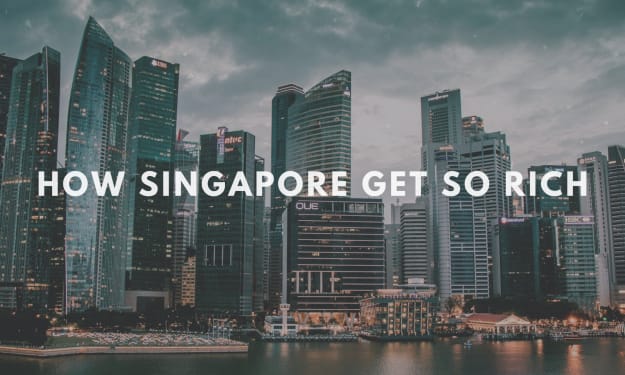Bill Ackman’s Greatest Trade
How a Hedge Fund Manager Turn 27 MILLION Into 2.6 BILLION Dollars Within 30 DAYS.

From 2015 to 2018, hedge fund manager Bill Ackman had negative returns while the S & P 500 returns were positive.
The investors started withdrawing their investment from his hedge fund because of his lousy performance.
During these three years, his fund’s assets under management went from 16 billion to just 6 billion in late 2018.
Ackman’s worse performance in that period was because of his controversial failed short position on Herbalife, which lost almost 1 billion dollars.
Ackman’s public image was also getting bad because of shorting Herbalife. But things got worse when he made more than one blunder.
His other worst investment during that time was in JCPenney. Ackman lost more than 400 million of the 900 million investment he invested in 2010.
Although previously, he had outperformed the S&P 500 every single year. But from 2015 to 2018, it seemed that Ackman had lost his touch.
He knew that if he did not outperform the market in the next few years, Ackman may have to close his fund.
Back In The Game
In 2019, Ackman started going to his roots as a value investor and buying good quality companies selling at low prices relative to their earnings.
He started buying Buffett’s Berkshire Hathaway and increased his position in other good-quality businesses.
It bounced back Ackman’s returns which were starting to beat the market. His hedge fund returns were 58.1%, while the s&p 500 returns were 29.9% in 2019.
This comeback made Bill Ackman again a favorite on Wall Street. But the best was yet to come.
COVID 19 Crash
In early Feb 2020, Ackman realized that the coronavirus can cause a lot of trouble to the global economy.
When china’s economy shut down due to covid in early 2020, it seemed to bill Ackman that this virus could have a global impact.
Ackman started to think that this coronavirus could spread very fast among people. So it is very likely that countries have to shut down their whole economies. During that period, nobody thought that restaurants and airlines would suddenly shut down, and everybody would go into lockdown.
Ackman started to think that a virus could quickly spread in the United States, and the government would impose lockdowns. So many businesses like restaurants, hotels, and offices have to shut down because of coronavirus, Which could send a downturn in the economy.
At that time, the market was not pricing in the threat of coronavirus. At first, Ackman was anxious about how this virus could crash the market and wanted to liquidate his position and go all in on the cash.
But instead, he decided to protect his portfolio by buying Credit default swaps on investment grades corporate bonds.
What is the Credit Default Swap?
Well, let the oracle of Omaha explain it.
When you purchase a credit default swap, you buy insurance on a business you don’t own. So you expect the company to shut down, so you will make a profit.
Bill Ackman was buying credit default swaps which would increase in value if companies default on their corporate debt.
He was buying credit default swaps rather than shorting a stock or buying a put option because the downside is limited in credit default swaps.
A typical credit default swap contract is a 5-year contract. So Ackman has to pay 27 million every month for five years, which means a total of 1.6 billion dollars. So he could only lose the amount of premium he paid.
But when companies default on their corporate debt, the credit default swaps increase significantly in value.
In credit default swaps, the lender buys a CDS from another investor who agrees to compensate the lender in the case, the borrower defaults.
Bill Ackman has to pay 324 million dollars in premium every year for 5 years, a total of 1.6 billion dollars.
Credit default swaps had a premium rate of 0.5% on corporate bonds before COVID caused a spread widening. By dividing the 324 million yearly premium by the 0.5 CDS insurance rate, you will get the 64.8 billion dollars bonds Ackman was buying protection on.
The entire corporate bond market has 6 trillion in investment-grade bonds. Ackman was buying protection on all 1% of all the corporate bonds in the market.
Usually, the price of a corporate bond and its yield or interest rate are inversely related.
If people are selling their bond, Then the price will go down, and interest on that bond will go up.
Bill Ackman started buying credit default in February. After ten days, On 3rd March 2020, he disclosed his position and said as follows.
During the past ten days, we have taken steps to protect the portfolio from downward market volatility.
We have done so because we believe that efforts to contain the coronavirus are likely to have a substantial negative impact on the U.S. and global economies, and equity and credit markets. Our approach to addressing this concern has been to acquire large notional hedges, which have asymmetric payoff characteristics; that is, the risk of loss from these hedges is limited, while their potential upside is many multiples of our capital at risk.
Usually, US Treasury bonds are considered the safest and least risky since the US government can’t go bankrupt. That’s why It provides a lower interest rate relative to corporate bonds.
Corporate bonds usually pay higher interest rates than treasury bond rates because lenders are taking a higher risk by giving money to businesses than the US government.
Before COVID, every investor was happy to lend money to corporations because they were Confidence that companies had the adequate cash flow to pay their investor.
But when COVID began spreading globally in march 2020, investors were suddenly becoming pessimistic about the future and worried that businesses default on their debt. So they started selling corporate bonds and purchased safe assets like US government bonds.
This selling pushes the corporate bond price down, and its yield increase, which also increases the value of credit default swaps.
Investors started buying US government bonds and selling corporate bonds, which made the spread between them wide and increased the value of his credit default swaps, which had turned 27 million dollars into 2.7 billion dollars within 30 days.
In Ackman’s case, the credit spread becomes wider about three times, leading his fund to a significant profit on his initial bet.

Ackman had turned his 27 million dollar bet in February into 2.7 billion dollars in march 2020. He later sold the position to buy a quality business, which was selling cheap during the crash.
Bill Ackman’s fund was up 70.2% at the end of 2020.

Conclusion
An important thing to note is that if COVID won’t come in march and the market won’t panic. Then Ackman would have to pay around 324 million in premium for five years.
Although, luck played some part in that trade because he bet on credit default swaps at a time when just after a month, the market started going down, and his bet paid off.
Some people called this bet the greatest trade of all time, while some people think Ackman manipulated the market by speaking on CNBC that hell is coming and spreading fear in the market to increase the value of his credit default swaps.
This type of opportunity comes once in a lifetime, and Ackman certainly knows how to take advantage of them and make billions of dollars.
Originally Published on Medium
Continue Reading:
About the Creator
Arsalan Haroon
Writer┃SEO Expert┃Investor







Comments (3)
Thank you for sharing. The stock market will be in for a wild ride in 2024. Us stock investors will have to ride the wave. It too shall pass.
Genius. Love this story. Epic trade.
😉Great piece! Bravo!👏🏼Thank you very much for sharing. 🙏 All the best and happy writing.